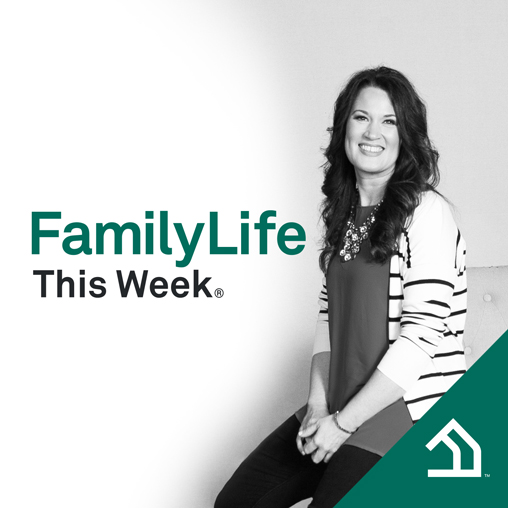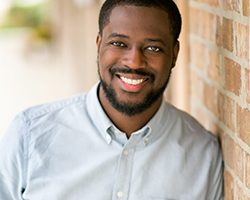
Messy Money
Student loans, medical bills, credit card debt--do any of these trouble your family? Hayley DiMarco and Philip Holmes tell their journey of becoming debt free. Brad Formsma shares some compelling insights that are found when you are out of debt and able to give freely to others.
Show Notes
About the Guest
-
- Find resources from this podcast at https://shop.familylife.com/Products.aspx?categoryid=130.
- Download FamilyLife's new app! https://www.familylife.com/app/
- Check out all that's available on the FamilyLife Podcast Network. https://www.familylife.com/familylife-podcast-network/
-

Brad Formsma
Brad Formsma is the creator of ilikegiving.com, a website viewed in more than 165 countries, which inspires people to live generously through its short films as well as a platform for all to share their experiences in giving. Brad and his wife, Laura, have three children and live in Grand Rapids, Michigan.
Philip Holmes
Phillip Holmes is the vice president for institutional communications at Reformed Theological Seminary and owner of Highest Good, a digital marketing and strategy agency. He and his wife, Jasmine, have two sons, Walter Wynn and Ezra Langston. They are members of Redeemer Church in Jackson, Mississippi. You can follow him on Twitter.
Hayley DiMarco and Philip Holmes share their journeys of becoming debt-free. Brad Formsma shares some of the joy that is found in giving to others once you’re free from debt.
Bob: It sounds to me a little bit like this dying to stuff thing is not making you happier. Do you know what I’m saying? I mean, as you are expressing it, this sounds hard; this sounds unpleasant. Is there joy, and peace, and hope in what you’re doing?
Hayley: Yes, there is relief in it. I think that, for a lot of us, the stuff becomes a burden. Even though it’s joyful when you’re shopping for it—you get it home—it becomes a burden.
The relief from that is found in just the letting go. Just like, when I’m in an argument with Michael: if I hold onto that, it feels good to get back at him, and to show him how I’m right—because that does feel better—it’s a quicker payoff.
Bob: Right; right.
Hayley: The end result will be more suffering, because it will compound/it just builds more and more animosity between us.
It’s the same with stuff. The more I buy stuff, the more it builds this feeling of just: “I’m overwhelmed,” “I’m too busy,” “There’s too much to do,” “There’s too much going on in my life.” And how many women complain about that?
If we could just let go of the stuff—meaning, not just the physical things—but our calendars filled with stuff: “I’m too busy to go play with my kids,”—or even—“…to play with my husband. I’ve got too much to do.” Does that feel like happiness?—it doesn’t. But letting it go, and living a simple life in all those areas, you will find great peace and great freedom.
[Studio]
Michelle: What a great reminder from Hayley DiMarco. The stuff that we have can burden us down. I’m in the process right now of moving homes and packing up everything. Boy, can I tell you—that stuff can burden you down. It almost makes me wish that I could pack up just the essentials in my small SUV and just drive away. A great reminder of just the simple.
That reminds me of something that my friend, Hannah Anderson, spoke about in a recent FamilyLife Today broadcast. She was talking about her book, Humble Roots. In that book she shares about Jesus and when Jesus was talking about: “Take My yoke upon you; because My yoke is easy, and My burden is light.” We have a link to that broadcast on our website, FamilyLifeThisWeek.com.
Hey, we need to take a break; but when we come back in two minutes, we’re going to take a look at the different side of money. Yes, there is a different side; and it’s a good side. We’ll talk about that next.
[Radio Station Spot Break]
Michelle: Welcome back to FamilyLife This Week. I'm Michelle Hill. Today, we are talking about money. Before the break, we talked about the debt that can weigh us down. Let’s take some time to look at the flip side of debt. Debt can inhibit us in many ways, and one of those ways is our inability to give: to be generous, to give financially to those in need, to give to God’s kingdom.
Brad Formsma is a man who loves giving so much that he built a website, a business, and his life around it. He’s the author of I Love Giving: the Transforming Power of a Generous Life. He’s also the creator of ILikeGiving.com. Recently, he shared, on FamilyLife Today, the DNA of where this giving came from and, also, the important person that modeled it for him.
[Previous FamilyLife Today Broadcast]
Brad: I grew up with a very generous grandfather. I would spend Saturdays going with him to his bakery. He would make large production runs of baked goods throughout the week; but he had his own little private bakery, where he’d make these 16 loaves of bread. We had five kids in our family; I was the oldest. I was looking for any good reason to get out of the house and the chaos. [Laughter]
I’d get in the back of my grandpa’s big car, and we’d go to his bakery. We’d bake these loaves of bread, and then we would set out to bring them to other people. It could be a shut-in; but it would also, maybe, be a wealthy person. It would be a kind word; it might be a loaf of bread; it might be a financial gift. I just saw it modeled for me.
One day, I was at his office. He pulled up a piece of paper that had all sorts of ministries on it. He looked at me, across the desk, and he said: “Brad, giving is good. God would have you give. When you give, He’ll often bring it back—not so you can have a better lifestyle—but that you can keep it moving/keeping on doing for other people.”
Dennis: Have your children caught the disease of generosity, Brad?
Brad: Well, Dennis, I like to say: “We get to give. We don’t got to give.” It’s absolutely been part of the legacy that my grandfather left—of modeling generosity—in the caught, not taught, thing. We don’t preach much about it; I don’t think we preach at all. I really try to talk to them about the ideas of Jesus and the power of living those ideas out.
So when we read, in Acts 20:35, about how Jesus says, “It’s more blessed to give than receive,” that has just become one of those staple verses in our home of: “There’s an idea of Jesus; we’re going to live that out.” What we find is that the more we live out His ideas, the more they become true; it just becomes part of our life.
As a matter of fact, years ago, a mentor of mine said there are hot leads in the newspaper. What he meant by that is there are opportunities to give and do for other people, even in your local newspaper. Our family got the Sunday morning newspaper; and we saw a Sudanese family, who had their bike stolen. I brought the article in; we read it, as a family, on a Sunday morning.
I asked them, “What could we do about this?” My seven-year-old—he looked at us—he held up his precious little blanket; he said, “I’ll give them my blanket.” I said: “Oh, Drew, bless you; but they can’t ride your blanket to work; any other ideas?” My oldest son said: “Oh, Dad! We have to go get them bikes.” I said: “You’re right! We have to go get them bikes.”
We brought them into this experience, where we went—and we put the whole day on hold for what we were going to do—because we really felt like the Lord gave us an assignment.
Bob: You didn’t know this family; there was an article in the newspaper about them.
Brad: Article in the newspaper—needle in a haystack—the only indicator I had, calling into this mega-church that had sponsored them, was a little picture in the newspaper. They wouldn’t tell me where they lived. I said, “Well, it looks like it’s in this part of town.” The guy said: “You’re right; it’s actually down on that end.” I said, “Well, that’s enough for us to go by.” I just had a strong sense we were supposed to make this happen that day; they needed to go to work the next.
Dennis: You’re talking about a family that truly needed transportation to be able to get to and from their home to work.
Brad: That’s right. That afternoon, we had big plans, as a family. We were going to go to a fun water park and do some really neat things. We decided, as a family: “We’re going to punt on that. We have to push ‘pause’ on the water park.” That afternoon, we were able to come into connection with this family.
Bob: How did you come into connection with them? First of all, you went to the bike store and bought bikes; right?
Brad: Bob, we went to Costco®—loaded up the minivan with two bikes—and set out on this adventure to find them; because we had a picture, out of the newspaper, that had a little hose reel on the side of the house. Because the person at the church had given me a general idea of where they lived, I said, “That’s enough for us to go on.” We’re driving up and down these streets; we realized: “Oh no! All these houses look the same.”
Then, we went back to that newspaper clipping. There’s that green hose reel, where Samson and Hussein, hopefully, live. We’re knocking on the door; and they said, “They’re not here.” I’m thinking: “Where could they have gone? They don’t have any transportation!” We drove around and got ice cream. An hour went by, and two hours, and three hours—
Dennis: So you found the house; they just weren’t there.
Brad: They weren’t there. We drove around this part of town for four hours; because Laura said to me: “We got these bikes. What are we going to do?” Now keep in mind, she’s hearing this tape, playing in her head: “Well, there are going to be hundreds of bikes in their front yard. Certainly, with 900,000 newspapers being circulated, somebody else is going to hit this need.”
Yet, when we came around the corner—and they were walking into their home; they had been dropped off by another family—we went to their door, and they came out. We had no way to communicate, other than just to point to the bike.
Dennis: —meaning they didn’t speak English?
Brad: They didn’t speak English. There was no way to communicate. We just said, “We want to bless you.” All the dad could say is: “I like bike! I like bike!” He’s riding this bike down the street. My boys are clapping, and his son was clapping. The tags are still on it. We just said: “Have a good day. See you later.” They just waved to us, and off we went.
The next morning—on my way to school, dropping off my son—he said to me, “Dad, that was way better than us ever going to that fun water park.” I thought: “It’s sticking. He’s realizing that it’s better to give than receive.”
Of course, the Lord is so clear in Timothy—He tells us we can enjoy these things; He wants us to enjoy His blessings—but when He gives us these assignments, and we get to be a part of these. As a matter of fact, if you go to ILikeGiving.com, you can watch “I Like Bike.” We spend four-and-a-half minutes re-enacting, as a family, for the very purpose of inspiring people to go out and create their own story.
[Studio]
Michelle: I was one of the people that was inspired by Brad Formsma. I watched that video, “I Like Bike.” It is so incredible, such a great impactful story. We have a link to the video, “I Like Bike,” on our website; that’s FamilyLifeThisWeek.com. I encourage you to spend a few minutes on the I Like Giving website. I can guarantee it’s going to inspire you/inspire you to make the world a better place by sharing the things that you have right around your house.
When we get out of debt, it empowers us to give more, and to give generously, and to help others—as I said before—to change the kingdom for the better and to be made joyful in the process. Just something to think about this weekend before you click on that Amazon order.
Coming up next week, we’ll all take a class on communication between men and women. It’ll be somewhat eye opening; and it’ll be somewhat, “Well, duh…” Jim and Carol Shores will help us better understand our spouse; I hope you can join us for that.
Hey, thanks for listening! I want to thank the co-founder of FamilyLife®, Dennis Rainey, and the president, David Robbins, along with our station partners around the country. A big “Thank you!” to our engineer today, Keith Lynch; our producers, Bruce Goff and Marques Holt. Justin Adams is our mastering engineer, and Megan Martin is our production coordinator.
Our program is a production of FamilyLife Today, and our mission is to effectively develop godly families who change the world one home at a time.
I'm Michelle Hill, inviting you to join us again next time for another edition of FamilyLife This Week.
We are so happy to provide these transcripts to you. However, there is a cost to produce them for our website. If you’ve benefited from the broadcast transcripts, would you consider donating today to help defray the costs?
Copyright © 2021 FamilyLife. All rights reserved.
1

